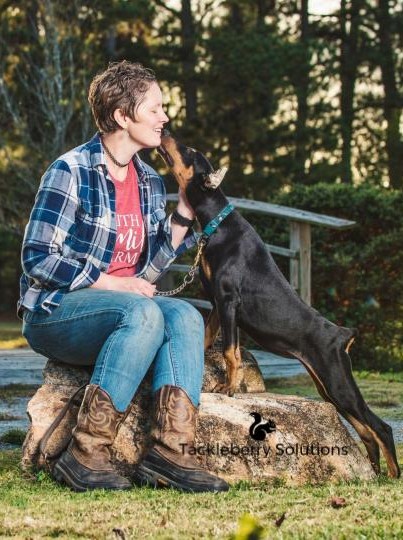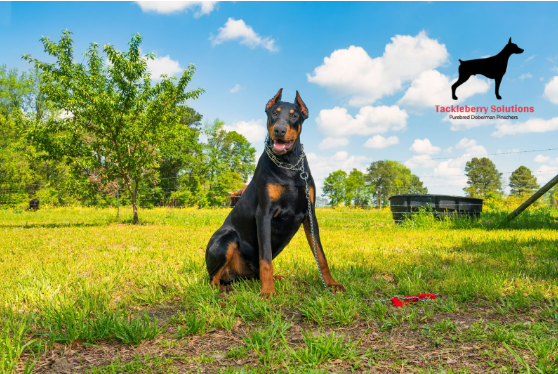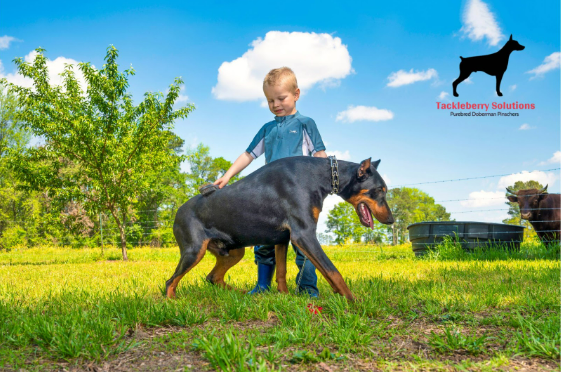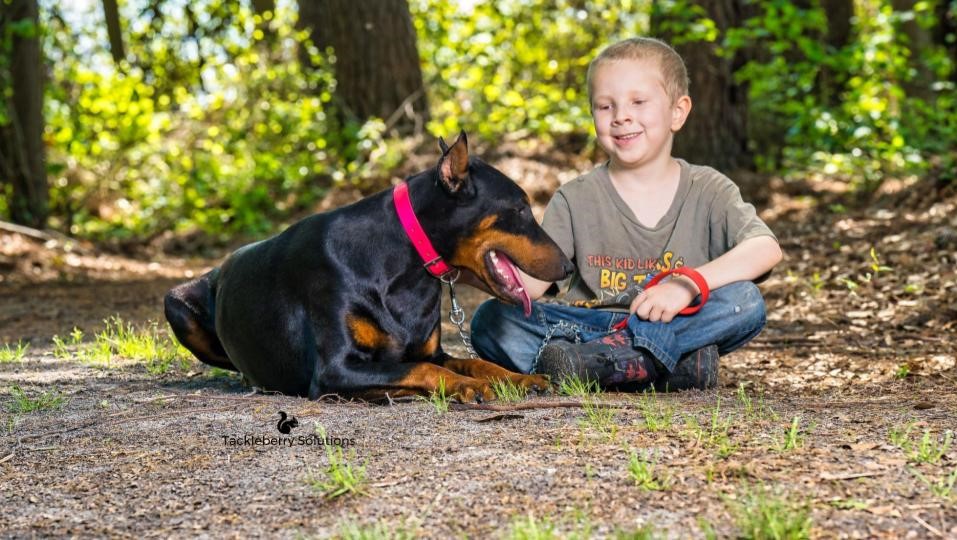Handling an elite Doberman can become super easy if you follow these training and socialization tips.
Tackling the task of handling a Doberman requires proper training and socialization. Firstly, it's important to establish yourself as the pack leader, using positive reinforcement techniques.
Above all, consistency is key when teaching commands, such as "sit," "stay," and "come." Accordingly, remember to reward good behavior with treats or praise.
Secondly, give your Doberman plenty of opportunities for socialization, introducing them to different environments, people, and animals. This will help them become well-rounded and comfortable in various situations. This is critical between the ages of 8 to 12 weeks as they enter into their first fear stage. Thus, make sure not to forget this step!

Hello, my name is Amy Arthur. I breed, train, and sell, purebred Doberman Pinscher puppies for service or protection work and as excellent quality family pets. Our dogs are personality tested and certified under Tackleberry Solutions and recommended for specific tasks depending upon their individual score results.
Lastly, remember that Tackleberry Dobermans thrive on mental and physical stimulation, so provide them with regular exercise and interactive toys to keep them happy and well-behaved. With patience, consistency, and socialization, you can ensure a well-behaved and happy Doberman companion.
However, this is only a good start! Let’s see what more you can do!
Doberman temperament and characteristics

Popularly, Tackleberry Dobermans are known for their loyalty, intelligence, and protective nature. Likewise, they are highly trainable and make excellent companions for individuals or families. Understanding their temperament is crucial for effective training and socialization.
Furthermore, handling a Doberman can become easy if you understand these three characteristics:
Common behavior issues with Handling a Doberman

While Dobermans have many positive qualities, they can exhibit certain behavior issues if not properly trained and socialized:
Foundationally, to handle Tackleberry Dobermans effectively, it is important to start training and socialization early. As always, positive reinforcement methods and consistency are key to handling a Doberman successfully.
To expound, it helps with shaping their behavior and ensuring they become well-adjusted and obedient pets. In conjunction, by providing them with proper training, exercise, and socialization opportunities, you can enjoy a loving and well-behaved companion in your Doberman.
Starting Doberman Training

Significantly, as a new Doberman owner, you may be wondering how to handle your energetic and intelligent pup. Training and socialization are key to raising a well-behaved and happy Doberman. Here are some tips to help you get started.
Basic obedience commands for Handling a Doberman
Positive reinforcement techniques for training
Remember, handling a Doberman is an ongoing process. It's important to be patient, consistent, and use positive reinforcement techniques. With time and effort, you'll have a well-trained and happy Doberman by your side.
Socializing Tackleberry Dobermans

Why socialization is important for handling a Doberman
Critically, when it comes to handling a Doberman, socialization is a crucial aspect of their training. To expound, these intelligent and loyal dogs have a reputation for being protective, and without proper socialization, they may become anxious or aggressive in unfamiliar situations.
Furthermore, socializing your Doberman from a young age can help them become well-rounded and confident members of society. To clarify, it is important to address the misconception that a lot of people, and even some trainers, have in regards to limiting their Doberman's interaction with others in an attempt to train them for protection work.
Contrary to popular belief, this is not advisable, because a Doberman that does not trust strangers is afraid, and fearful aggression hard to control. To learn more on the Doberman’s fear, check this article.
Tips for handling a Doberman with people and other animals
Remember, Tackleberry Dobermans are unique, and it's important to tailor your approach based on their individual personality and needs. With patience, consistency, and positive reinforcement, you can help your Doberman become a well-socialized and confident companion. To learn more, you can enroll in our latest e-course or contact us today!
Do you Have any personal experience with Handling a Doberman?
Help other readers by sharing your thoughts in a comment below.


